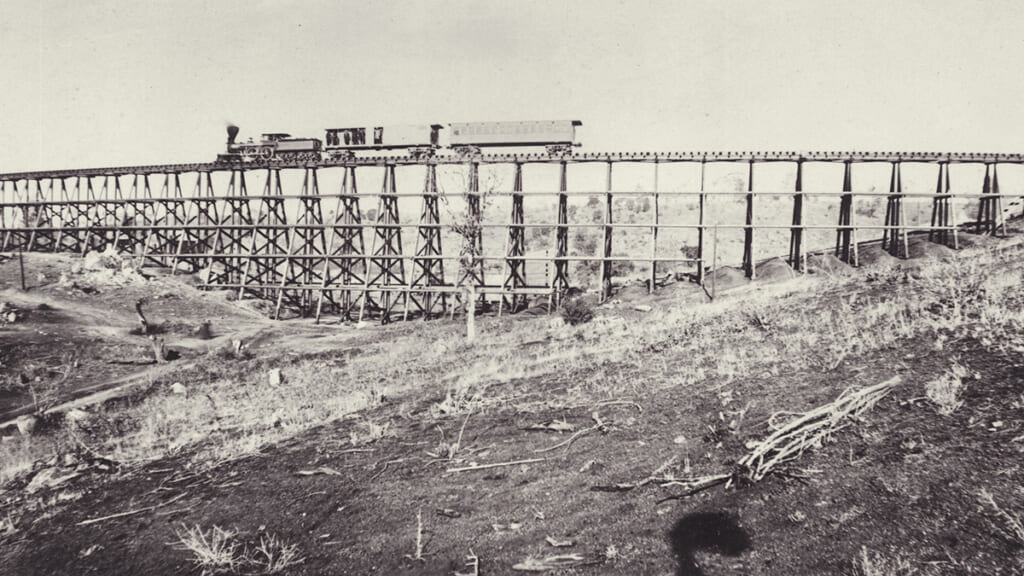Creating equitable infrastructure is essential to addressing racism in our country
Opinion: President Biden’s American Jobs Plan to help address inequities, and create opportunities for underserved neighborhoods
For the first time, Congress has an opportunity to create an infrastructure plan that fairly supports all people, neighborhoods, and communities, but recognizes the important fact that housing is infrastructure. There is no doubt that infrastructure in the U.S. needs a major overhaul.
According to the American Society of Civil Engineers’ Infrastructure Report Card, the state of our nation’s infrastructure gets a C- — which is an improvement over its previous D+ score. We’ve ignored necessary upgrades for too long. Fortunately, President Joe Biden’s American Jobs Plan has a chance to establish precedent by using infrastructure as a tool to heal neighborhoods — particularly communities of color — that continue to be impacted by the legacy of harmful and inequitable policies.
Read More: Buttigieg says racism built into US infrastructure was a ‘conscious choice’
Some argue that infrastructure only encompasses roads, bridges, tunnels, and railroads and while those are all vital, this definition is woefully inadequate. Infrastructure includes sewer systems, water lines, waste facilities, and telecommunications. It also includes parks, housing, public squares, economic centers, and schools.

Today, housing comprises 18% of the U.S. GDP. The more we invest in affordable housing, the more economic opportunities we create, including for the people of color and low-income individuals that have been disproportionately harmed by inequities baked into American infrastructure policies. Building just 100 affordable rental homes can generate $11.7 million in local income and 161 jobs in the first year.
Defining infrastructure narrowly ignores the intricate and impactful connections that exist between determining where a new transit line will be laid and the housing that must be razed to make way for the new transportation system; how it will connect people from where they live to the places where they work, go to school, worship, or get healthcare; and how the new system will even change the contours of neighborhoods where people live.
A restrictive definition of infrastructure ignores something else too — the way these projects have long been used to exploit people, rob them of the spaces they occupied, and create highly inequitable communities segregated by the race of the people living in them and the opportunities to which they have access.
Read More: Biden to visit Louisiana to promote infrastructure plan
During the colonization of the United States, government forces extracted lands from Native Americans by dislodging people to build roads, bridges, and public squares. The predominantly Black community of Seneca Village was annihilated by New York City officials to pave the way for their new layout for the city and the development of Central Park. The building of the First Transcontinental Railroad not only created housing instability for Chinese workers, but it disrupted the living patterns of thousands of Native Americans.

Infrastructure bills like the Federal Aid Highway Act and the Housing Act of 1949 — which established the Urban Removal Program — were implemented with explicitly racist provisions that resulted in the decimation of communities of color, while they simultaneously provided extensive economic investments for predominantly white communities. State and local governments have previously utilized infrastructure legislation to raze housing and businesses often destroying Black and Brown communities.
Given the history of infrastructure projects being developed in a manner that often decimated neighborhoods inhabited by Black and Brown people, it is encouraging that the Biden-Harris administration has proposed taking a holistic approach for infrastructure improvements.
To be clear, there are many areas that require a more deliberate racial justice lens. For example, communities of color have less access to high-speed Internet. People who lack residential broadband service for reasons other than network availability are disproportionately people of color. Race is also the most significant predictor of whether a person will live in a community with contaminated land, air, or water.
More than half of the people who live within two miles of a waste facility are people of color. And people of color live in housing without access to drinking water at twice the rate of white Americans. Additionally, the COVID-19 pandemic has shown just how critical the most basic and essential component of infrastructure — safe, sustainable, affordable housing — is to our nation’s health and well-being.

Infrastructure projects can isolate communities from key opportunities, or they can serve to support access to the resources necessary for them to thrive. The manner in which infrastructure is developed can help ensure all people live in well-resourced spaces with access to critical amenities and clean land, air, and water, or they can exacerbate and further entrench a structurally inequitable landscape.
Unfortunately, our nation has a history of using infrastructure projects to create and maintain racial segregation and inequality. Past policies have devastated and destabilized many communities of color displacing entire neighborhoods and leaving behind ripple effects that have put generations of Americans at a material disadvantage.
The history of developing infrastructure in a manner that destroyed or devalued Black, Latino, Asian and Pacific Islander, and Native American communities, warrants the use of President Biden’s American Jobs Plan to help address inequities, and create opportunities for underserved neighborhoods. This is how we “build back better.”
Sherrilyn Ifill is the President and Director-Counsel of the NAACP Legal Defense and Educational Fund, Inc.
Lisa Rice, President and Chief Executive Officer of the National Fair Housing Alliance.
Have you subscribed to theGrio’s “Dear Culture” podcast? Download our newest episodes now!
TheGrio is now on Apple TV, Amazon Fire and Roku. Download theGrio.com today!
The post Creating equitable infrastructure is essential to addressing racism in our country appeared first on TheGrio.
from TheGrio https://ift.tt/3hk6xF7
No comments: